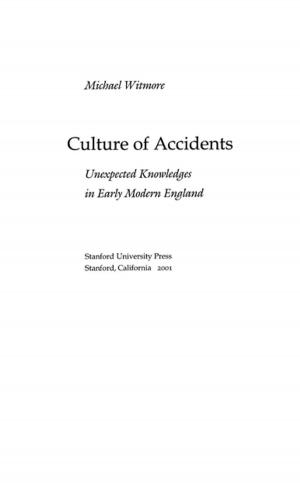The Tradition of Non-Use of Nuclear Weapons
Nonfiction, Social & Cultural Studies, Political Science, Politics, Arms Control, History, Military, Nuclear Warfare, International, International Security| Author: | T.V. Paul | ISBN: | 9780804771009 |
| Publisher: | Stanford University Press | Publication: | January 23, 2009 |
| Imprint: | Stanford Security Studies | Language: | English |
| Author: | T.V. Paul |
| ISBN: | 9780804771009 |
| Publisher: | Stanford University Press |
| Publication: | January 23, 2009 |
| Imprint: | Stanford Security Studies |
| Language: | English |
Since the Hiroshima and Nagasaki attacks, no state has unleashed nuclear weapons. What explains this? According to the author, the answer lies in a prohibition inherent in the tradition of non-use, a time-honored obligation that has been adhered to by all nuclear states—thanks to a consensus view that use would have a catastrophic impact on humankind, the environment, and the reputation of the user. The book offers an in-depth analysis of the nuclear policies of the U.S., Russia, China, the UK, France, India, Israel, and Pakistan and assesses the contributions of these states to the rise and persistence of the tradition of nuclear non-use. It examines the influence of the tradition on the behavior of nuclear and non-nuclear states in crises and wars, and explores the tradition's implications for nuclear non-proliferation regimes, deterrence theory, and policy. And it concludes by discussing the future of the tradition in the current global security environment.
Since the Hiroshima and Nagasaki attacks, no state has unleashed nuclear weapons. What explains this? According to the author, the answer lies in a prohibition inherent in the tradition of non-use, a time-honored obligation that has been adhered to by all nuclear states—thanks to a consensus view that use would have a catastrophic impact on humankind, the environment, and the reputation of the user. The book offers an in-depth analysis of the nuclear policies of the U.S., Russia, China, the UK, France, India, Israel, and Pakistan and assesses the contributions of these states to the rise and persistence of the tradition of nuclear non-use. It examines the influence of the tradition on the behavior of nuclear and non-nuclear states in crises and wars, and explores the tradition's implications for nuclear non-proliferation regimes, deterrence theory, and policy. And it concludes by discussing the future of the tradition in the current global security environment.















